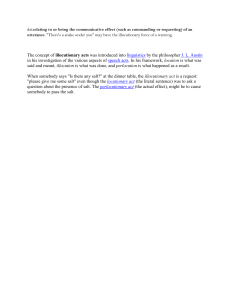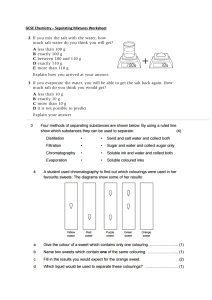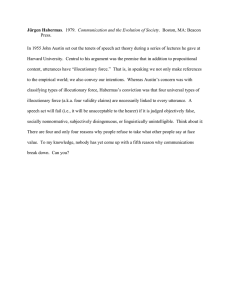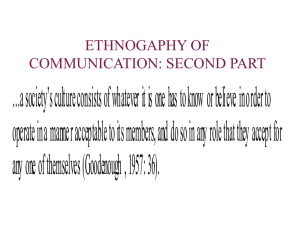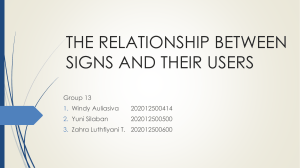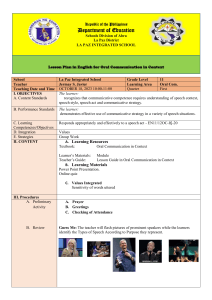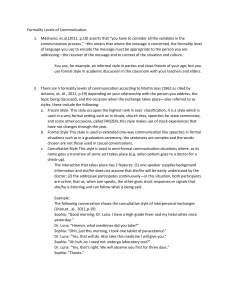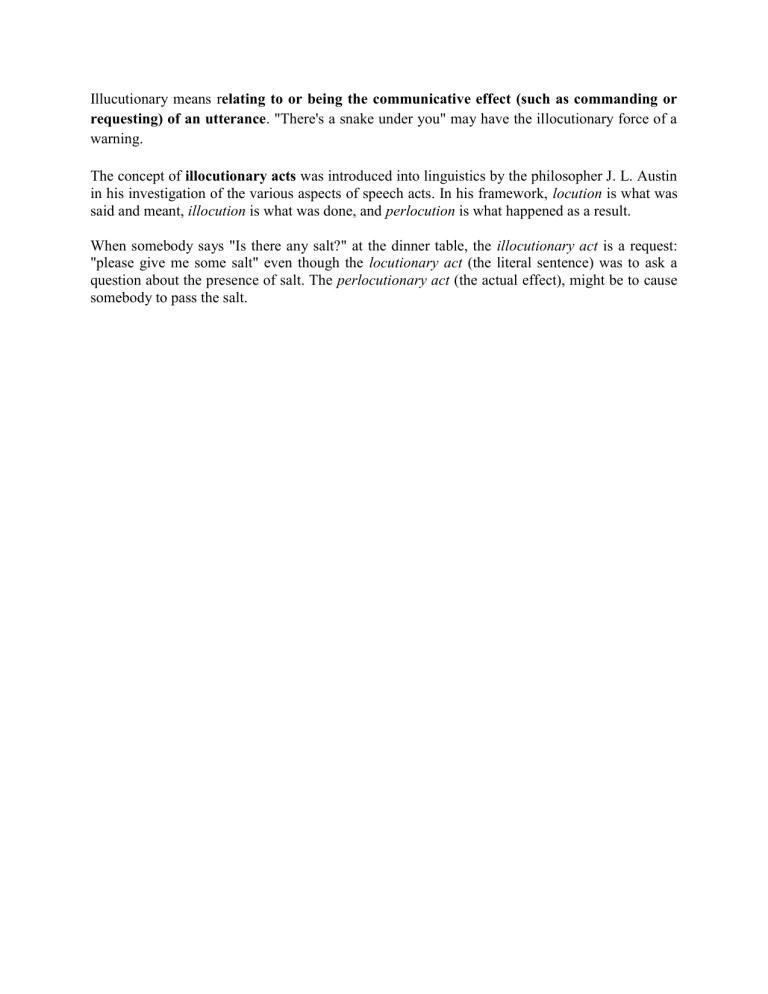
Illucutionary means relating to or being the communicative effect (such as commanding or requesting) of an utterance. "There's a snake under you" may have the illocutionary force of a warning. The concept of illocutionary acts was introduced into linguistics by the philosopher J. L. Austin in his investigation of the various aspects of speech acts. In his framework, locution is what was said and meant, illocution is what was done, and perlocution is what happened as a result. When somebody says "Is there any salt?" at the dinner table, the illocutionary act is a request: "please give me some salt" even though the locutionary act (the literal sentence) was to ask a question about the presence of salt. The perlocutionary act (the actual effect), might be to cause somebody to pass the salt.
